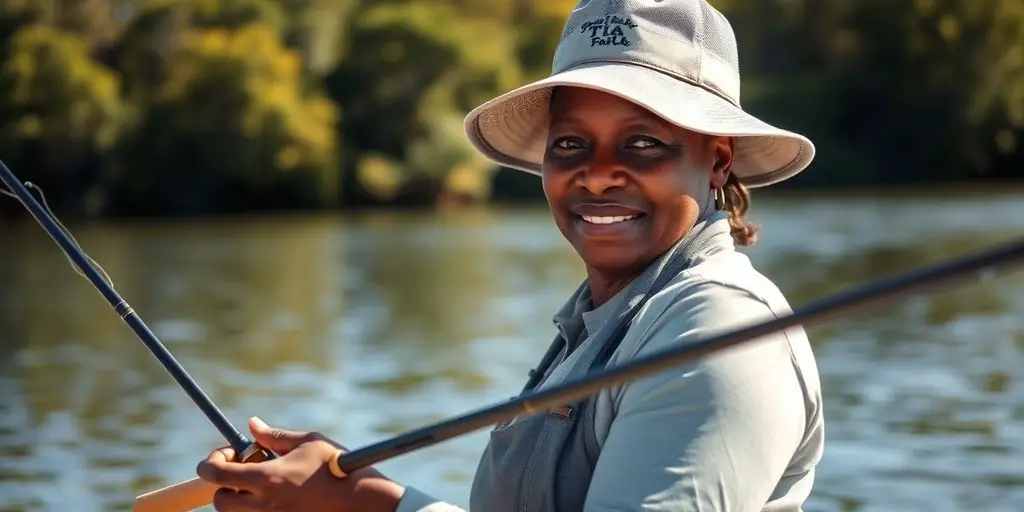Tia Clark, a Gullah Geechee woman and owner of Casual Crabbing with Tia, is challenging the narrative around fishing, crabbing, and hunting as a Black woman. Her journey from a sedentary lifestyle to becoming an advocate for food sovereignty highlights the cultural significance of these activities within the Gullah Geechee community.
Key Takeaways
- Tia Clark emphasizes the importance of reconnecting with ancestral practices.
- Fishing and crabbing are vital for cultural identity and sustainability.
- Clark aims to empower Black youth and women through outdoor activities.
Clark’s transformation began seven years ago when she faced health issues due to inactivity and stress. After returning to the water, she experienced a profound change in her physical and mental well-being. “I don’t feel I’m choosing this. I feel like this is what I have to do,” she stated, reflecting on her connection to the sea.
The Gullah Geechee people have a deep-rooted relationship with the ocean, which has historically provided sustenance. However, gentrification and restrictions have limited access to fishing and crabbing sites, making Clark’s work even more crucial. By teaching others these skills, she not only promotes fun but also fosters a sense of community and cultural heritage.
The Importance Of Ancestral Connection
Clark believes that engaging in these activities allows individuals to connect with their ancestors. She recalls her childhood memories of being fed crab and shrimp in her grandmother’s yard, emphasizing the emotional ties to the sea. “If I close my eyes, I can tell you where the table was, and I can tell you the taste of the sea in those crabs,” she shared.
This connection is vital, especially for Black individuals who have historically been excluded from outdoor sports. Clark challenges the stereotypes that suggest Black people are uninterested in activities like fishing and hunting. She highlights the historical context, where enslaved people were forced to fish and hunt, often under dire circumstances.
Reclaiming Space In Outdoor Activities
Clark’s mission extends beyond personal empowerment; she aims to create a welcoming environment for Black people in outdoor spaces. “We need to get a mass influx of Black people to return to the water,” she asserts. By fostering confidence and connection to the sea, she hopes to break down barriers and encourage participation.
Hunting and fishing, for Clark, are not merely sports; they are acts of self-defense and community building. After her alligator hunt, she shared the bounty with her community, preparing meals that brought people together. This communal aspect reinforces the idea that these activities are about more than individual achievement; they are about cultural inheritance and shared experiences.
A Call To Action
Clark emphasizes the importance of teaching Black youth and women about these practices. She believes that if they are not educated about their heritage, they risk losing touch with their roots. “They will carry it into the future. It is their inheritance,” she explains.
In a world where food is often seen as a commodity, Clark advocates for a return to understanding the significance of sourcing food. The emotional journey of hunting and fishing is a reminder of the connection to the land and sea, and the responsibility that comes with it.
Through her work, Tia Clark is not just redefining what it means to fish, crab, and hunt as a Black woman; she is reclaiming a space that has always belonged to her community. By connecting with the sea, she invites others to explore their heritage and embrace the healing power of nature.
